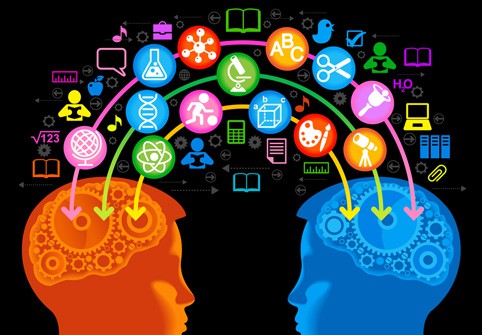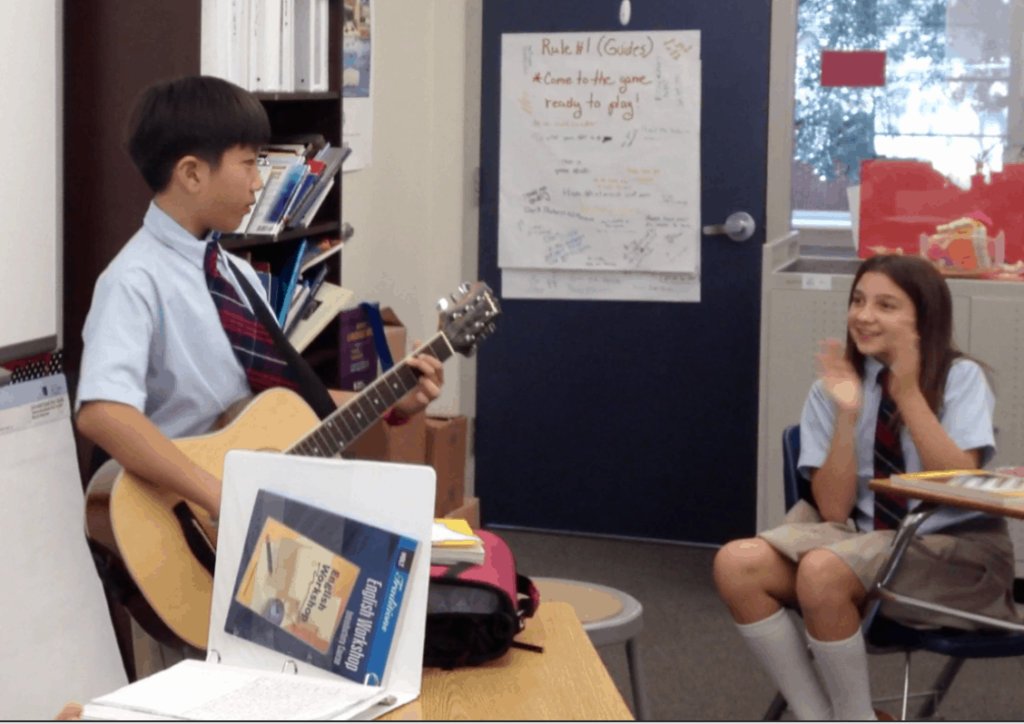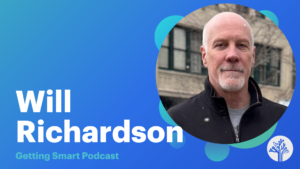Creating Authentic Jobs For Student Learning Teams


I think students have wised up to us. We’ve meant well as we’ve given them small jobs and empowered them with assigned roles for classroom activities. We’ve asked them to be note-takers and time-keepers. They’ve pounded our erasers in the previous century, just as they clean our whiteboards today. We’ve invited them to brainstorm ways to solve real problems like organizing bulletin boards and planning classroom parties. And yet our students have begun to figure out that these jobs, even as they instill a sense of community responsibility, don’t really add up to cooking up the central ingredients to their education. We haven’t asked enough of our students in the jobs we create for them.
As many educational thinkers mark the evolution of a new era of personal learning, students are beginning to explore, on their own, the multitude of learning spaces at their disposal. They can now choose alternative ways of acquiring the kind of education that will serve their needs. And they’re starting to figure out that what we educators haven’t done in any meaningful way is invite them to share in the real work of collaborating in designing their learning experiences.
Self-Directed Study: An Example
Let’s say you know some kids who have grown up playing Guitar Hero, and now they are passionate enough about music to want to learn how to play the real instrument. They can still jam with the guy down the street or even pick up a few pointers at the local Guitar Center. If they can afford it, they can hire an experienced instructor for guitar lessons. They can also study instructional videos on YouTube or at freeguitarvideos.com. If they get serious about music, they can apply to attend the Berklee School of Music. Or they can take courses from the Berklee School of Music Online. If they have digital access, they have the opportunity to learn by collaborating in music sessions via BandCamp or by studying free podcasts in “Music Composition and Production” from the University of Glamorgan on iTunesU, not to mention observing close-ups of the fingering techniques of all their favorite artists on YouTube. Better yet, they can study “How Music Works” at Coursera.
Our Responsibility
Yet in our traditional classrooms, we continue to teach students to become passive recipients of the instruction we choose and design for them. Okay, so as their teachers, we’ve been around the block a few times, and we think we know what it is they need to know. (Usually, we can agree on the reading, writing, and arithmetic basics at least.) Yet, I wonder if our students will be ready to embark on a road that is truly less traveled – that is, designed entirely by themselves for themselves. Will they have the skills and capacities they will need for filtering information, finding qualified teachers, persevering through difficulties, and managing their learning? Or will they be marching, ill-equipped and misinformed, into the wild of self-directed education? What will cleaning whiteboards and planning parties do for them then?
Thus, I’ve been trying to figure out how to give students the opportunity to experience authentic learning through real jobs within the context of developing my curriculum. I hope they can then build the capacities they will need to ultimately pursue learning on their own. So, this year, I built Student Learning Teams into my courses, hoping to fire up student engagement and to give my students a chance to explore new ways of learning that would have an immediate and perceivable impact. Now that we have advanced one quarter into the academic year, I have to say that we have traversed a rough and rocky road, and we’re definitely not there yet.
My Experiment
Inspired by John Hunter’s TED Talk on “Teaching the World Peace Game,” I started kicking around ideas for implementing student committees that would let groups of students solve real problems related to their learning in my Language Arts classes. I had worked with students on committees to choose summer reading books, so I felt confident allowing them to choose some of the reading for my curriculum, for instance. After listening to Alan November present at ISTE 2012 on the concept of “Digital Learning Farms,” I refined my ideas further. Now I added the element of having my students conduct research and create materials for learning. I ended up with four learning teams my fifth- and sixth-graders could rotate through for each academic quarter:
- Reader Librarians, who would maintain the classroom library and review the collection, as well as make a recommendation for a shared reading assignment for the class
- Cultural Anthropologists, who would investigate and track the culture of the course, particularly with regard to homework
- Training Specialists, who could create study materials and provide tutorials as needed; and
- Resource Managers, who would conduct research and provide resources to help the other teams or to address any needs.
Next I allowed students to meet as teams during one class period every twelve days in our rotating schedule. I followed the model of FedEx days (now called “ShipIt Days” at Atlassian, the company that invented them, for obvious legal reasons), where workers are allotted time to develop their own projects, but given the instruction to deliver something “overnight.” Thus, I asked my students to produce a written report at the end of each meeting.
However well-intentioned my plans, my results thus far have proved less than inspiring. In one instance, I watched as two argumentative sixth-graders battled for an entire period about who should be their group’s “leader.” A few of my Cultural Anthropologists evolved into frustrated, over-zealous “homework police.” The boys among my Reader Librarians refused to read any “girl” books, while the girls couldn’t find a path towards compromise that didn’t mean totally giving in. My Resource Managers twiddled their thumbs as they waited for direction from the other groups – they had no concept of how to proactively determine what to research to augment the curriculum.
It wasn’t a total loss, though. One of my Reader Librarian groups did make a reading suggestion to add to the curriculum, while another stirred up a lively hornet’s nest of a discussion about which books should and should not be included in our class library. The Learning Specialist teams seemed to have the greatest success — from one there emerged a singer-songwriter who performed his own composition about the “bonus” words in our vocabulary list, and another produced a video to reinforce a grammar lesson (though its members have yet to determine how to share it with the class). My guess is that students’ experiences in school probably lend themselves to understanding the nature of good instruction better than they do the ticklish circumstances of what to do when students don’t want to do their homework.
Regrouping
Overall, though I’ve come to understand that I made more than a few mistakes, I believe our biggest problem has been trust. Though they were excited about their jobs at first, I’m not sure my students actually believed that I would really empower them to effect positive change in their learning environment. After all, when had they really been asked to take charge of their own learning – and actually entrusted to do it?
So, I’m reading Adam Fletcher’s “Meaningful Student Involvement: Guide to Students as Partners in School Change” (made available by soundout), along with Marilyn M. Lombardi’s white paper for Educause, “Approaches That Work: How Authentic Learning Is Transforming Higher Education.” I attended a workshop with John Hunter and studied in person the power of his whole-hearted, caring demeanor, as well as the delicate balance of structure and guided inquiry that he uses when he asks students, “How are you going to solve that problem?” I plan to share John Hunter’s TED Talk with my students as an introduction to a probing discussion about what worked in the Learning Teams and what didn’t, We will dig deep to uncover what they see are the problems and where they think we need to go. Meanwhile, I hope to build a stronger sense of trust, so that my students will believe me when I tell them I want to empower them to take charge of their own learning.
We have arrived at the first really important stage of our work together: learning from our mistakes.





Swagat Das
Today's kids are way smarter than what we were few decades back. Experimentation as you did in my opinion is wonderful exercise which allow kids to express themselves and understand their true potential which help them in shaping up their career in the right direction in future.
susanlucilledavis
Thanks for your kind words. Learning is always part experimentation in my view. Why is it we only think we should conduct experiments in science classes? If we don't experiment -- with language, with ideas, with strategies -- we don't grow.
Adam Fletcher
Hi Susan!
Just came across your post, and wanted to let you know that I'd love to write a response piece with you. Let me know if you'd be interested in that, either as a Q&A between us or in another format!
Great piece - inspiring.
- Adam